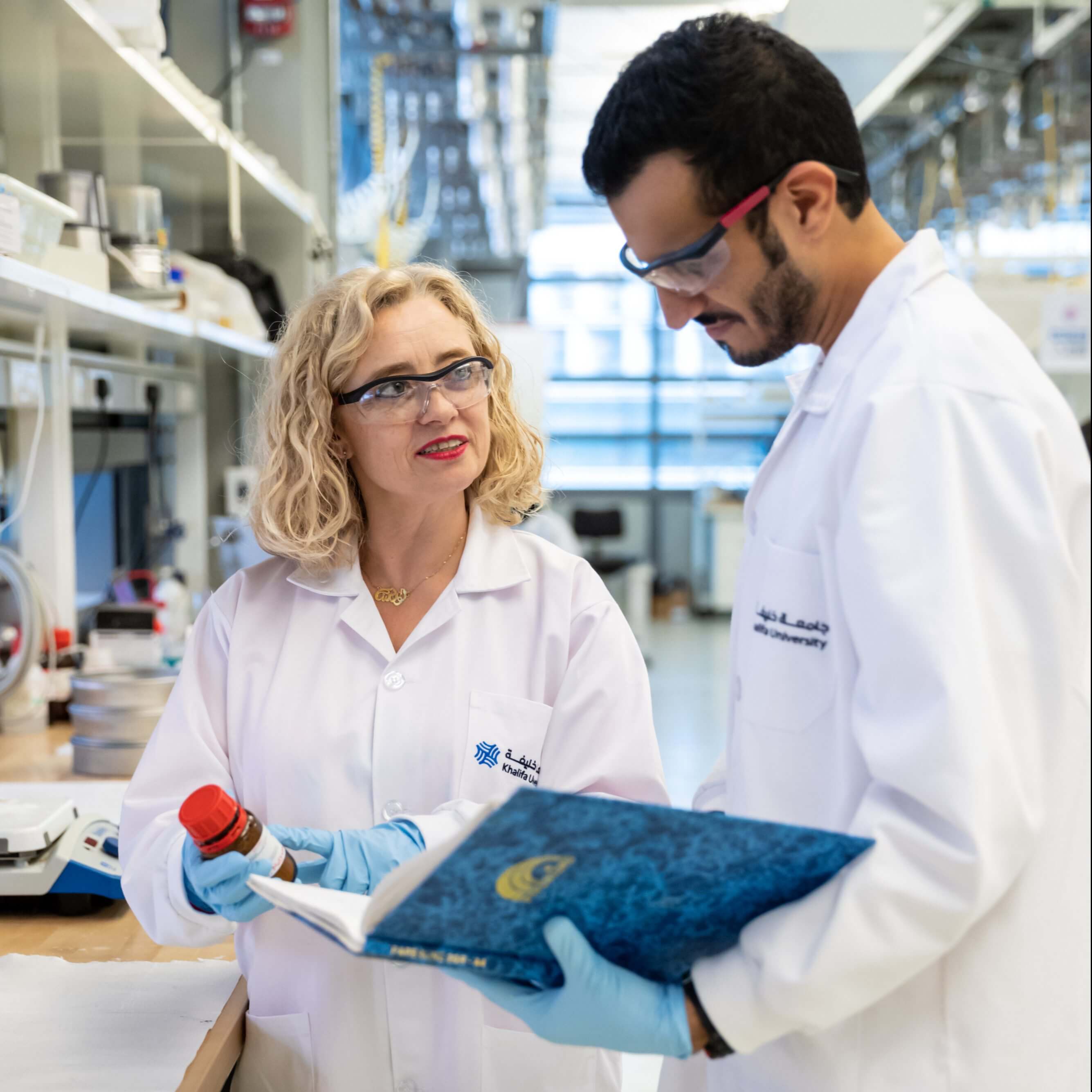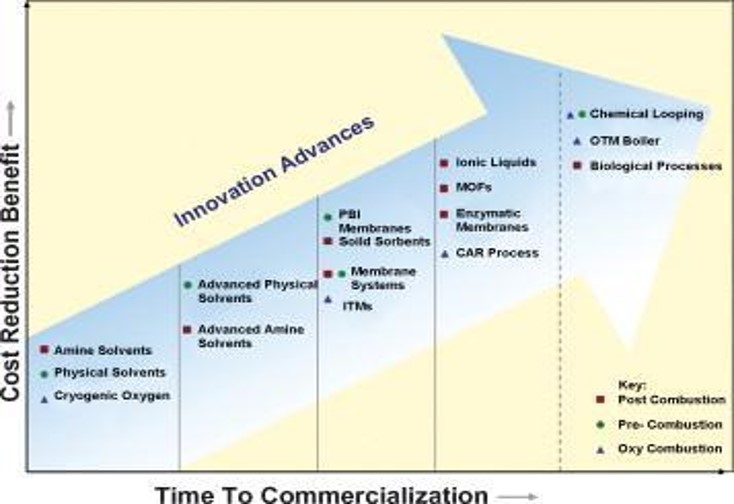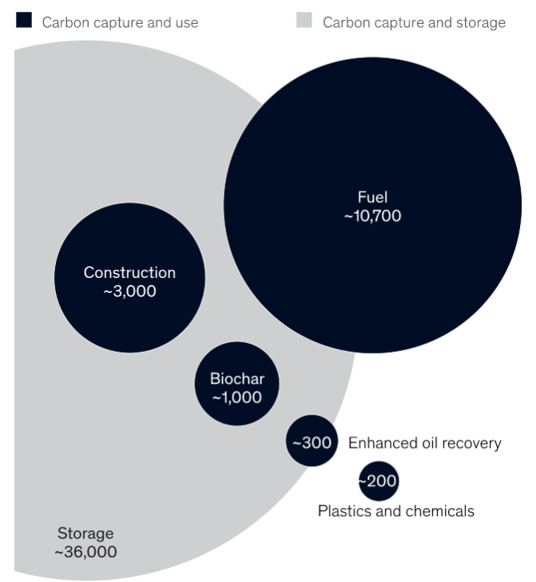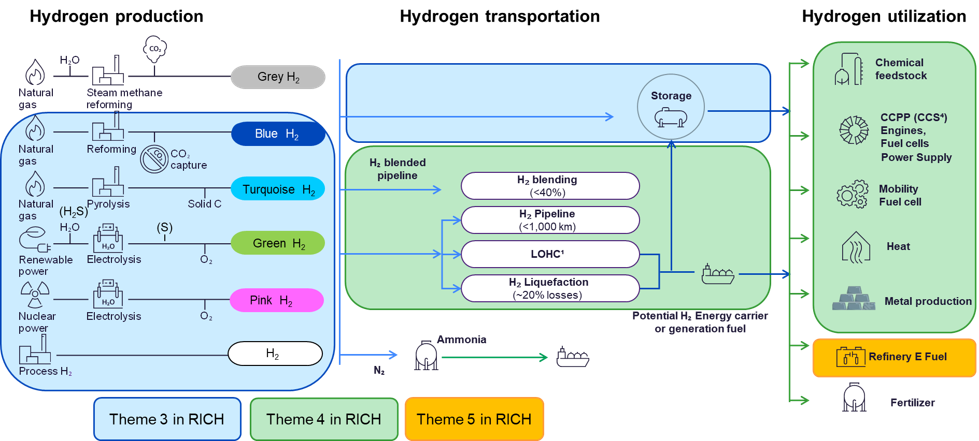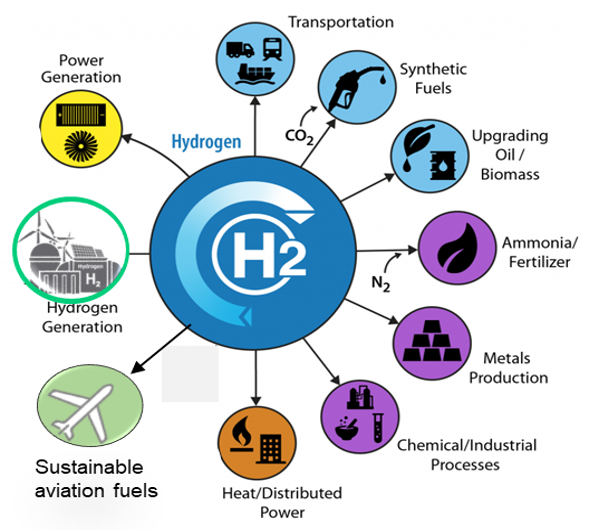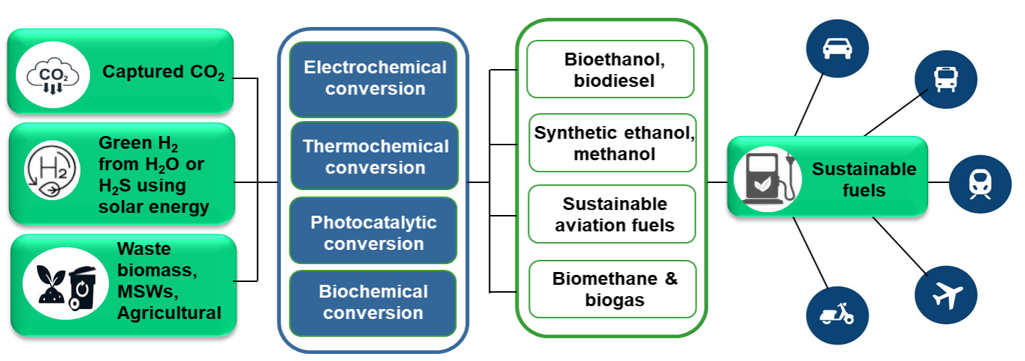RICH research themes are aligned with UAE and KU strategic goals to educate and develop valuable knowledge for energy and the environment. The four main themes covered by the center are CO2 capture, CO2 utilization, H2 production, storage and distribution, and Outreach and dissemination.
The themes and topics covered by RICH are aligned with the strategic priority that KU places in research and education for energy and the environment as well as the strategy of the UAE. Some selected projects are directly funded by the initial seed provided by Khalifa University to support the center, while other parallel projects complement the activities carried on by the center. The center is divided in four interconnected themes
